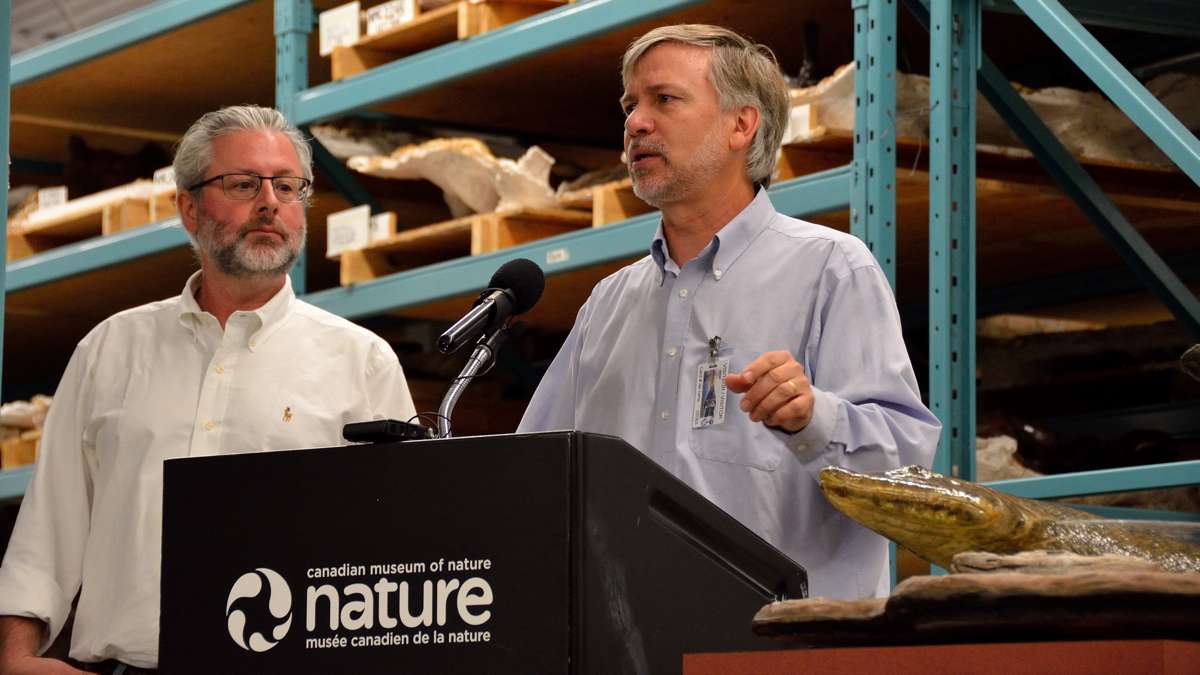Success as a sweet antidote for failure
ListenBreakthrough paleontology requires the right rocks, luck and lots of persistence.
If there is such as thing as a “rock” star paleontologist, it’s Ted Daeschler from the Academy of Natural Sciences of Drexel University.
His fishapod discovery—with Neil Shubin from the University of Chicago– landed him on late night TV sparring with comedian Stephen Colbert.
The paleontologists found fossils of an animal that is sort of a stepping-stone between finned animals living in water and limbed animals that began to travel on land.
Tiktaalik roseae is a true scientific breakthrough and a media darling, but years before that splashy success, Daeschler says there were quiet disappointments in the Canadian artic.
His story, his words…
The area we were looking in had been roughly mapped. Imagine though you have an area the size Pennsylvania, even after we did our homework and realized exactly where the rock of the right age was exposed, how would we know where to go first?”
We spent three to four months’ work just planning for our first expedition.
We had spent a lot of money, and we had spent a lot of time, and we had put our reputation on the line, there was a newspaper article back here in Philly, they called it ‘Neil and Ted’s Excellent Adventure.’
We felt pressure to produce.
Almost from the first day, we were saying, hmmm: ‘Nothing of great interest.’ Our second camp, we found nothing goose egg, zero.
My colleagues who had a little more experience, and [were] a little more wiser than me at the time said, ‘You don’t find things way more often than you find things in paleontology, but you need to be persistent.’
We get back from that first field season, disappointed, absolutely disappointed, and the frustration in me was just palpable.
More rocks to explore
We basically had to learn. We wanted to be where the rivers were making big bends and leaving mud on the flood plains, etc. That was the key to figuring out what would be the best area to dig.
Failure in science often means you actually do get some data, you are learning something, the problem would be if you didn’t listen to that data.
In 2000, we went back to the Canadian Artic. Almost immediately clouds opened, sun shined and we started to find a site which had potential, but again there was no eureka moment right then and there.
The next time we were back was 2002. One more field season, better rocks, better fossils, but still we didn’t have front-page news to report to anybody. So we went back in 2004 and hit a goldmine.
Our best specimen had the head, shoulders, scales and part of that hind fin.
That felt great. That was redemption.
WHYY is your source for fact-based, in-depth journalism and information. As a nonprofit organization, we rely on financial support from readers like you. Please give today.







